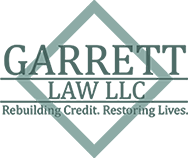

Chapter 7 - Discharge of Unsecured Debt
Discuss Your Needs with a Dedicated Topeka Bankruptcy Lawyer
Chapter 7 is the type of bankruptcy most people can identify. You file the paperwork and call a petition with the court. Before filing any paperwork, be sure to discuss your unique needs with a skilled Topeka Chapter 7 bankruptcy attorney.
The petition is a long document that comprehensively describes the following:
- What you owe
- What you own
- What you make in monthly income
- Your financial activities in general over the past three months to two years
In essence, the court takes a “snapshot” of your financial condition on the day you file. The creditors you list in your bankruptcy will get notices from the court that you have filed, as well as what your intentions are regarding the debts you owe. The court and an attorney, called the Chapter 7 Trustee, will review your paperwork and if all goes well they will approve your request for relief. When the Court reviews and approves the case, you can get your debts discharged.
What Happens to Debt in a Chapter 7 Bankruptcy?
Dischargeable debts are able to be dismissed – these are your typical unsecured debts:
- Credit cards
- Deficiencies on repossession
- Medical bills
- Back rent from an old lease
- Civil judgments
- Personal unsecured loans
- Other general unsecured debts
If you have debts secured by a piece of property, such as a vehicle or a home, you don’t have to pay the loan if you surrender the property (give it to the creditor). If you want to keep the property, you either have reaffirmed the loan (meaning you are personally liable on the note again), or pay the fair market value all at once (called redemption).
Non-Dischargeable Debts
Non-dischargeable debts are unaffected – Chapter 7 bankruptcy does not address these debts. You will have to continue to deal directly with the creditor for these types of debts. Typical debts not discharged in Chapter 7 include:
- Recent back taxes
- Student loans
- Criminal fines and penalties
- Back child support
Bounced checks, technically, are discharged in Chapter 7, but you may need to pay the face value and a collection fee for any bad checks you wrote in the last five years to prevent criminal prosecution. Credit card charges within the last 90 days and cash advances within the last year may also be an issue.
You Have a Choice With Secured Debt
When you have purchased property on credit, or when you have pledged already-owned property as security for collateral, you have secured debt. The creditor has reserved the right to take the property back if you do not make your payments. Car payments, mortgages, and boat payments are common examples. Nebraska Furniture Mart, Best Buy, and most jewelry stores such as Zales and Helzberg’s take a security interest in what you purchase there if you use their store credit.
You have a choice with secured debt – you can pay the note according to its terms and keep the property. If you do not want to pay for the property, you can give the property back and not owe anything, even if you owe more than what the property is worth. That is often a budgeting decision more than a bankruptcy decision. This may be your opportunity to give back an expensive car or boat and lighten your financial load! The choice is yours.
In Chapter 7, keeping secured property is voluntary between both you and the creditor. In order to safely retain the property, you and the creditor must sign a reaffirmation agreement, essentially removing the contract from the bankruptcy. You become personally liable on the note, regardless of the bankruptcy. You give your protections when you sign the agreement.

-
“Absolutely enjoyed working with Garrett Law, him and his staff were wonderful through the process and very knowledgeable.”
What Happens to Property in a Chapter 7 Bankruptcy?
You will be able to keep most or all of your property. In Kansas, you may keep the following items:
- Equity in your residence
- Your clothing and household effects
- Furs and jewelry up to $1,000 per person
- Your qualified retirement accounts
- $7,500 in tools of the trade if you are self-employed
- Your vehicle
- Other common items
The Trustee will look for other property that he or she can take and sell to pay creditors. At-risk property includes:
- Cash in savings and checking accounts
- Any tax refund money you have not yet received
- Extra vehicles
- Real property that is not your residence and in which you have equity
- Money that other people owe you
It is possible to keep some or all of this property, depending on whether it is worth anything at auction or whether the Trustee is willing to come to an arrangement where you “buy back” the items by paying the value in cash.
Is Chapter 7 Right For Me?
Chapter 7 is fast, efficient and cheap. Chapter 7 works better than Chapter 13 for people who are unemployed or are underemployed, to the point where the household cannot meet basic expenses such as rent or mortgage, utilities, and food. It also works where the household does not have secured property they want to keep, such as a car with a note, or expensive “toys” like Jet-skis and fishing boats.
Chapter 7 does not assist you in debts that will survive the bankruptcy. Non-dischargeable debts and secured debts on property you wish to keep are not affected by the Chapter 7 discharge. You lose the ability to control the actions of creditors in Chapter 7, and this may prevent you from fully addressing your financial situation.
Get in Touch With Garrett Law LLC Today - Free Consultation!
Both Chapter 7 and Chapter 13 discharge most debts. Chapter 7 is an efficient – perhaps brutally efficient – way to discharge most debts, leaving you to deal with the debts that remain. What you get for your money is a fast, efficient, relatively cheap way to massively improve your financial health. If you need extra help in handling debts, claims, or other financial issues that a Chapter 7 does not address, you may want to consider a Chapter 13 filing.
Call (888) 253-4526 to speak with our highly experienced Topeka bankruptcy lawyer at Garrett Law LLC today for your free consultation!
Contact Garrett Law LLC Today!


